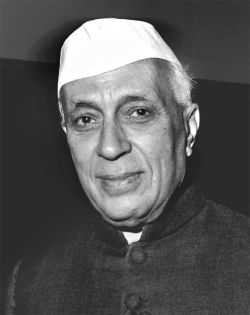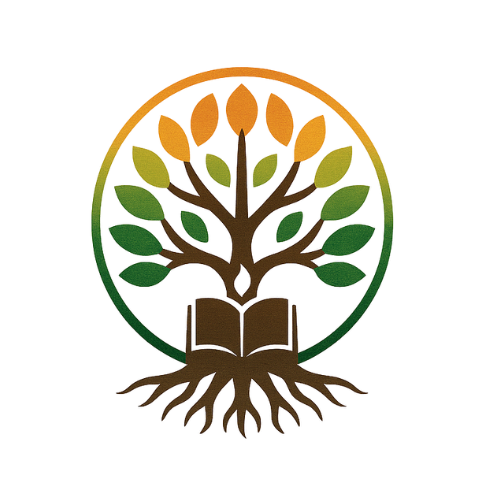Jawaharlal Nehru: Difference between revisions
No edit summary |
No edit summary |
||
| (2 intermediate revisions by the same user not shown) | |||
| Line 17: | Line 17: | ||
| death_date = {{Death date and age|1964|05|27|1889|11|14}} | | death_date = {{Death date and age|1964|05|27|1889|11|14}} | ||
| death_place = [[New Delhi]], [[India]] | | death_place = [[New Delhi]], [[India]] | ||
| resting_place = | | resting_place = Shantivan, New Delhi | ||
| nationality = Indian | | nationality = Indian | ||
| occupation = Politician, Freedom Fighter, Writer | | occupation = Politician, Freedom Fighter, Writer | ||
| years_active = 1912–1964 | | years_active = 1912–1964 | ||
| known_for = First [[Prime Minister of India]], Indian independence movement, | | known_for = First [[Prime Minister of India]], Indian independence movement, Non-alignment Movement | ||
| notable_works = ''The Discovery of India'', ''Letters from a Father to His Daughter'', ''Glimpses of World History'' | | notable_works = ''The Discovery of India'', ''Letters from a Father to His Daughter'', ''Glimpses of World History'' | ||
| awards = [[Bharat Ratna]] (1955) | | awards = [[Bharat Ratna]] (1955) | ||
| spouse = | | spouse = Kamala Nehru | ||
| children = [[Indira Gandhi]] | | children = [[Indira Gandhi]] | ||
| parents = | | parents = Motilal Nehru (father), | ||
Swaruprani Thussu (mother) | |||
| religion = Hinduism | | religion = Hinduism | ||
| website = [https://nehrumemorial.nic.in Nehru Memorial Museum & Library] | | website = [https://nehrumemorial.nic.in Nehru Memorial Museum & Library] | ||
| Line 32: | Line 33: | ||
== Early Life and Education == | == Early Life and Education == | ||
Nehru was born into a wealthy Kashmiri Brahmin family in | Nehru was born into a wealthy Kashmiri Brahmin family in Allahabad. His father, Motilal Nehru, was a prominent lawyer and Congress leader. Nehru was educated at Harrow and Eton in England, and later studied law at Trinity College, Cambridge, and the Inner Temple in London.<ref>https://www.history.com/topics/india/jawaharlal-nehru</ref> | ||
== Role in Indian Independence Movement == | == Role in Indian Independence Movement == | ||
| Line 50: | Line 51: | ||
== Foreign Policy == | == Foreign Policy == | ||
Nehru championed the policy of '''Non-Alignment''' during the Cold War and was a founding leader of the | Nehru championed the policy of '''Non-Alignment''' during the Cold War and was a founding leader of the Non-Aligned Movement (NAM). He also advocated for peace and cooperation among newly independent nations. | ||
== Notable Works == | == Notable Works == | ||
* '' | * ''Discovery of India'' – A historical and philosophical work written during his imprisonment. | ||
* ''Glimpses of World History'' – Letters to his daughter Indira, explaining world history. | * ''Glimpses of World History'' – Letters to his daughter Indira, explaining world history. | ||
* ''Letters from a Father to His Daughter'' – A collection of educational letters written to a young [[Indira Gandhi]]. | * ''Letters from a Father to His Daughter'' – A collection of educational letters written to a young [[Indira Gandhi]]. | ||
* '' | * ''Tryst with Destiny'' – His iconic speech delivered on 15 August 1947. | ||
== Legacy == | == Legacy == | ||
| Line 68: | Line 69: | ||
== Death == | == Death == | ||
Jawaharlal Nehru passed away on 27 May 1964 due to a heart attack. He was cremated at | Jawaharlal Nehru passed away on 27 May 1964 due to a heart attack. He was cremated at Shantivan in New Delhi. | ||
== See Also == | == See Also == | ||
* [[Indian National Congress]] | * [[Indian National Congress]] | ||
* [[Indira Gandhi]] | * [[Indira Gandhi]] | ||
* | * Non-Aligned Movement | ||
* [[Mahatma Gandhi]] | * [[Mahatma Gandhi]] | ||
* | * Tryst with Destiny | ||
== References == | == References == | ||
| Line 83: | Line 84: | ||
[[Category:Articles needing more references]] | [[Category:Articles needing more references]] | ||
[[Category:Indian politicians]] | [[Category:Indian politicians]] | ||
[[Category:Prime Ministers of India]] | [[Category:Prime Ministers of India]] | ||
[[Category:Indian National Congress politicians]] | [[Category:Indian National Congress politicians]] | ||
[[Category:Writers]] | [[Category: Indian Writers]] | ||
[[Category:Lawyers]] | [[Category: Indian Lawyers]] | ||
[[Category:People from Allahabad]] | [[Category:People from Allahabad]] | ||
[[Category:1889 births]] | [[Category:1889 births]] | ||
[[Category:1964 deaths]] | [[Category:1964 deaths]] | ||
[[Category:Recipients of the Bharat Ratna Award]] | [[Category:Recipients of the Bharat Ratna Award]] | ||
Latest revision as of 09:20, 6 August 2025
| Jawaharlal Nehru | |
|---|---|

| |
| Jawaharlal Nehru in the 1950s | |
| Born | 14 November 1889 |
| Birthplace | Allahabad, North-Western Provinces, British India (now Uttar Pradesh, India) |
| Died | 27 May 1964 (aged 74) |
| Place of death | New Delhi, India |
| Resting place | Shantivan, New Delhi |
| Nationality | Indian |
| Occupation | Politician, Freedom Fighter, Writer |
| Years active | 1912–1964 |
| Known for | First Prime Minister of India, Indian independence movement, Non-alignment Movement |
| Notable works | The Discovery of India, Letters from a Father to His Daughter, Glimpses of World History |
| Awards | Bharat Ratna (1955) |
| Spouse(s) | Kamala Nehru |
| Children | Indira Gandhi |
| Parents | Motilal Nehru (father),
Swaruprani Thussu (mother) |
| Religion | Hinduism |
| Website | Nehru Memorial Museum & Library |
Jawaharlal Nehru (14 November 1889 – 27 May 1964), often called Pandit Nehru, was an Indian freedom fighter, the first Prime Minister of independent India, and a central figure in Indian politics for decades. A senior leader of the Indian National Congress, he was a close associate of Mahatma Gandhi and played a significant role in the Indian independence movement.[1]
Early Life and Education
Nehru was born into a wealthy Kashmiri Brahmin family in Allahabad. His father, Motilal Nehru, was a prominent lawyer and Congress leader. Nehru was educated at Harrow and Eton in England, and later studied law at Trinity College, Cambridge, and the Inner Temple in London.[2]
Role in Indian Independence Movement
Inspired by Gandhi’s ideology of non-violence and civil disobedience, Nehru joined the Indian National Congress and soon became one of its most prominent leaders. He participated in:
- Non-Cooperation Movement (1920s)
- Civil Disobedience Movement (1930)
- Quit India Movement (1942)
He was imprisoned multiple times by the British for his activism.
Prime Minister of India
After independence in 1947, Nehru became the first Prime Minister of India and served until his death in 1964. He laid the foundation for:
- A parliamentary democracy
- Industrial and scientific advancement
- Secular and socialist policies
- Establishment of IITs, AIIMS, and scientific research institutions
Foreign Policy
Nehru championed the policy of Non-Alignment during the Cold War and was a founding leader of the Non-Aligned Movement (NAM). He also advocated for peace and cooperation among newly independent nations.
Notable Works
- Discovery of India – A historical and philosophical work written during his imprisonment.
- Glimpses of World History – Letters to his daughter Indira, explaining world history.
- Letters from a Father to His Daughter – A collection of educational letters written to a young Indira Gandhi.
- Tryst with Destiny – His iconic speech delivered on 15 August 1947.
Legacy
- Fondly known as Chacha Nehru, especially among children.
- His birthday, 14 November, is celebrated as Children's Day in India.
- Remembered for laying the foundation of modern India’s institutions and democratic values.
Awards and Honors
- Bharat Ratna – India’s highest civilian award, awarded in 1955.
- Numerous institutions, parks, and roads across India are named after him.
Death
Jawaharlal Nehru passed away on 27 May 1964 due to a heart attack. He was cremated at Shantivan in New Delhi.
See Also
- Indian National Congress
- Indira Gandhi
- Non-Aligned Movement
- Mahatma Gandhi
- Tryst with Destiny

